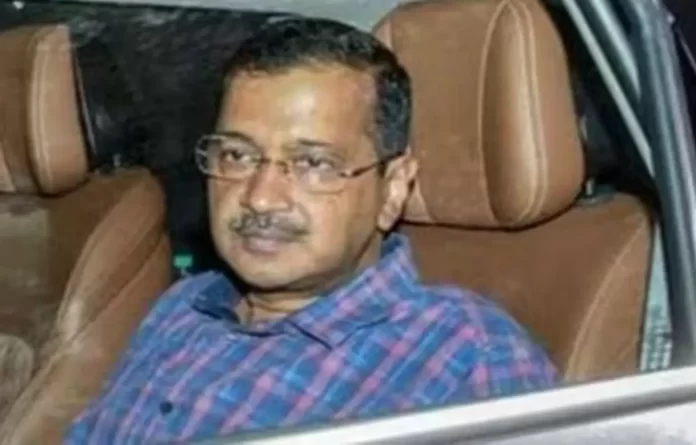The Delhi High Court on Wednesday reserved verdict on the plea moved by Chief Minister Arvind Kejriwal challenging his arrest by the Enforcement Directorate (ED) in the money laundering case related to the liquor policy scam.
During the hearing today, Senior Advocate Abhishek Manu Singhvi, appearing for Arvind Kejriwal referred to a note he gave the court on the last hearing and contended that this case reeks of timing issues. He added that the timing issue ensures that the petitioner is unable to participate in a democratic activity and is an attempt to disintegrate as well as demolish his party before the first vote is cast.
The Senior Advocate further asserted that the unique feature of this case was no material in any manner is supporting Section 50 of PMLA. He stated that the arrest was done without an inquiry and that there is no ground for arrest. Referring to the judgment by the Supreme Court in the matter of Vijay Madan Lal, Singhvi argued that no attempt is made to record a Section 50 statement even at the Chief Minister’s residence. He also referred to the judgment in the matter of Pankaj Bansal and argued that the timing of arrest right after the Model Code of Conduct is to humiliate, insult, and disable him and his political party.
The counsel further contended that there is clear vicarious liability. Senior Advocate Singhvi mentioned that Section 70 is clearly invoked by ED, but 70 cannot arise at all. He explained that the section is a specific provision as per companies. He continued that when a political party called AAP is a registered party under a different statute and when a party is registered under the Representation of People Act (ROPA), then a different statute which differently recognizes entity status of political party, cannot be subsumed in the heading of company in a PMLA statute. He added that the party already has an identity in statutes particularly governing parties. He underlined that there has to be a specific role of the petitioner, which includes under Section 70 even for a company, which he denied.
Meanwhile, appearing for ED, Additional Solicitor General SV Raju contended that he is in a dilemma whether the petition is argued as a Bail Application, quashing or discharge Application. He added that there is some property which is already provisionally attached and that the investigation agency wants to attach some properties of the AAP. However, he claimed that if they attach the properties, allegations will be made that the actions are taken ahead of the election.
The ASG contended that on March 28, a second remand order was passed, which has not been challenged. Furthermore, the third remand order of judicial custody has not been challenged. Noting that Arvind Kejriwal’s custody isn’t pursuant to arrest or first remand Order, it’s pursuant to April 1 Order, which has not been challenged, ASG Raju submitted that unless he challenges the subsequent orders, it cannot be said to be illegal. He also argued that this is a Bail Petition in the guise of Writ Petition, therefore, it should be rejected.
On the aspect of Section 70 PMLA, the ASG mentioned that the case is that the AAP is an association of persons or individuals, adding that a company is not only a private limited but it also an association of persons.
After hearing both the submissions, Justice Swarana Kanta Sharma reserved the verdict.
CM Kejriwal was arrested by the investigation agency on March 21. The trial court on March 22 remanded him to six days of custody, which was extended by further four days. He was remanded to judicial custody till April 15 on April 1. Justice Sharma had earlier denied any interim relief to Arvind Kejriwal and only issued notice on his plea challenging the arrest, as well as his interim application seeking immediate release.


